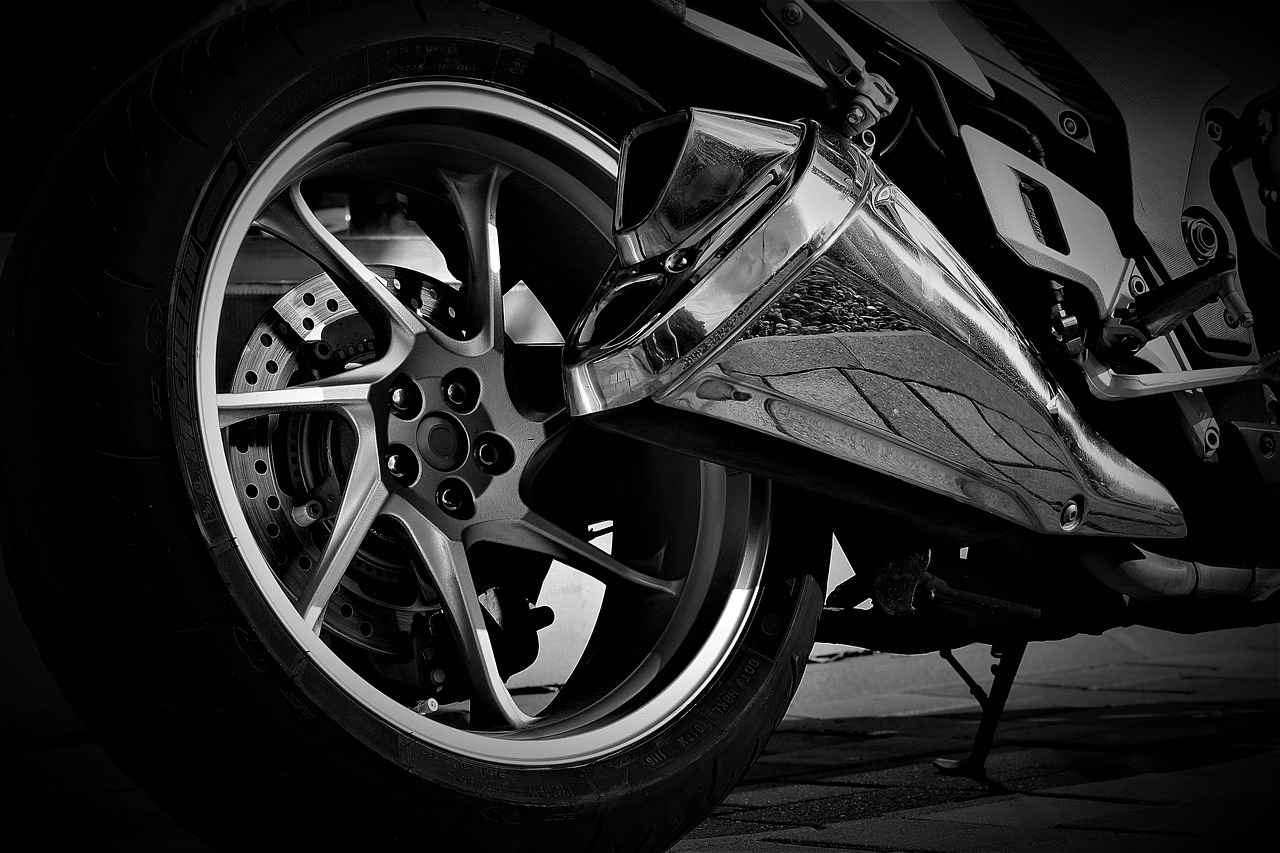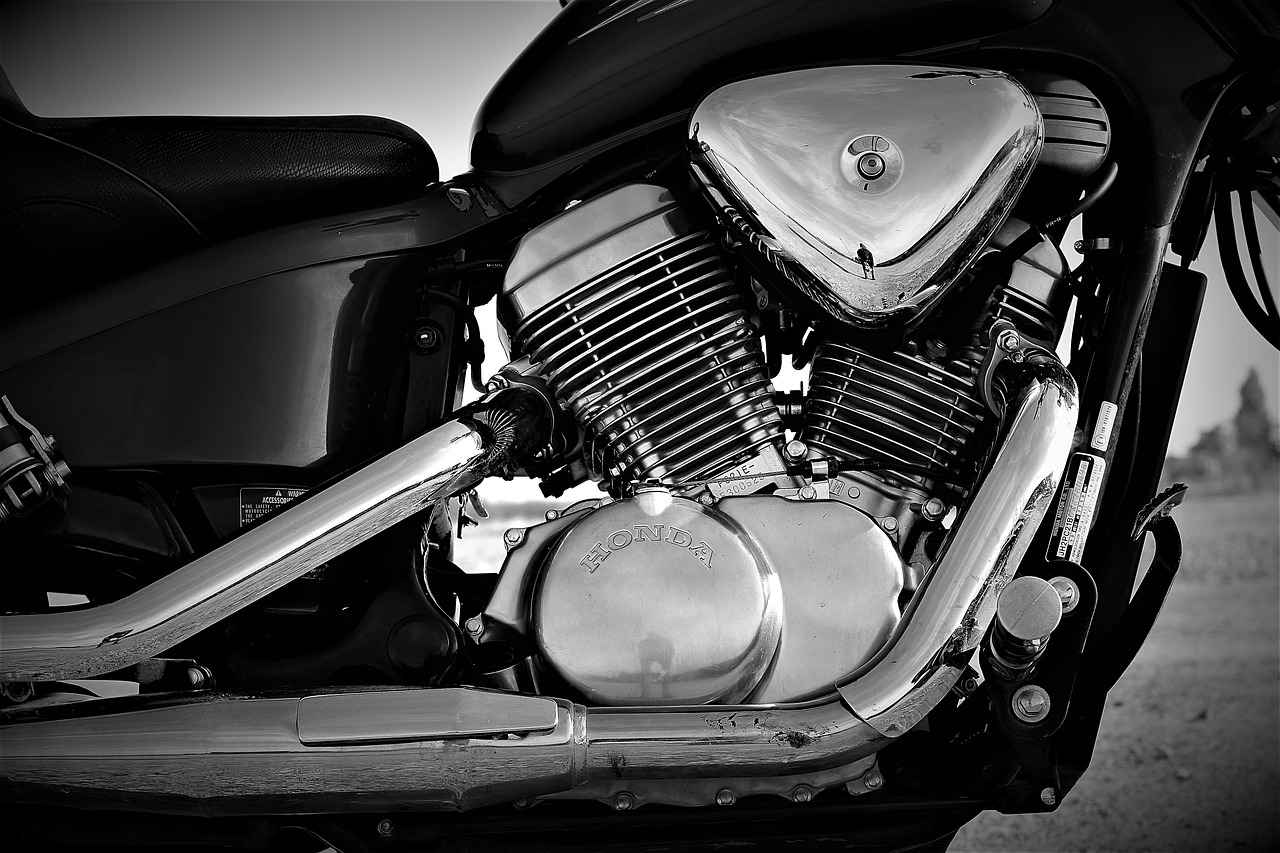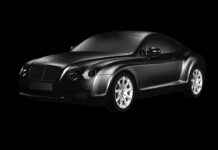This article delves into the reliability of Honda Accords, providing a thorough examination of their performance, maintenance costs, consumer reviews, and expert insights. By exploring these elements, we aim to offer a comprehensive understanding of why the Honda Accord has become one of the most popular vehicles on the market.
What Makes Honda Accords Stand Out?
Honda Accords are celebrated for their longevity and fuel efficiency. Key features contributing to their reputation include:
- Engineering Quality: Honda’s commitment to precision engineering results in vehicles that withstand the test of time.
- Design Aesthetics: The sleek design not only appeals visually but also enhances aerodynamics, contributing to fuel efficiency.
How Do Honda Accords Perform Over Time?
Understanding the long-term performance of Honda Accords is crucial for potential buyers. Many owners report that these vehicles maintain their performance over the years, with durability being a common theme in consumer feedback. However, like any vehicle, some common issues may arise:
- Transmission problems in certain model years.
- Electrical system glitches.
What Do Reliability Ratings Say?
Reliability ratings from sources such as J.D. Power and Consumer Reports consistently rank Honda Accords highly compared to competitors. These ratings reflect owner satisfaction and the frequency of repairs, reinforcing the Accord’s reputation for reliability.
How Does Honda Accord Compare to Other Brands?
When compared to brands like Toyota and Ford, the Honda Accord often excels in terms of reliability and owner satisfaction. Although each brand has its strengths, the Accord frequently emerges as a top choice for buyers seeking a dependable vehicle.
What Are Common Honda Accord Issues?
While Honda Accords are generally reliable, some specific issues have been reported. Common problems include:
- Oil consumption in older models.
- Brake wear issues.
These problems, while not universal, are worth considering for prospective buyers.
What Maintenance Should Accord Owners Expect?
Routine maintenance is essential for the longevity of any vehicle, including the Honda Accord. Key maintenance tasks include:
- Regular oil changes every 5,000 to 7,500 miles.
- Tire rotations every 6,000 miles.
- Brake inspections at least once a year.
Following these guidelines can help keep the Accord in optimal condition.
How Do Owner Reviews Reflect Reliability?
Owner reviews provide invaluable insights into the real-world experiences of Honda Accord drivers. Many owners praise the vehicle for its reliability and comfort, often highlighting their positive experiences over many years of ownership.
What Do Long-term Owners Say?
Long-term owners frequently express high levels of satisfaction, noting that their Honda Accords have remained dependable throughout their ownership. Testimonials often emphasize the vehicle’s ability to perform well even after many miles.
Are There Generational Differences in Reliability?
Each generation of the Honda Accord exhibits varying levels of reliability. Generally, newer models incorporate technological advancements that enhance performance and reduce maintenance needs. However, some earlier models are still regarded as exceptionally reliable.
What Is the Cost of Ownership for a Honda Accord?
Understanding the total cost of ownership is crucial for prospective buyers. This includes:
- Maintenance Costs: Typically lower than many competitors.
- Fuel Costs: Honda Accords are known for their excellent fuel economy.
- Insurance Premiums: Generally affordable, making them a budget-friendly option.
How Does Fuel Efficiency Impact Overall Reliability?
The Honda Accord’s fuel efficiency not only contributes to lower running costs but also reflects its engineering excellence. This efficiency is a significant factor in the overall reliability perception among owners.
What Are the Insurance Costs for Honda Accords?
Insurance costs can vary based on factors such as location and driving history. However, Honda Accords tend to have competitive premiums, making them an economical choice for many drivers.
What Do Experts Say About Honda Accord Reliability?
Expert opinions often highlight the Honda Accord as a benchmark for reliability in the midsize sedan category. Analysts frequently cite its performance and longevity as key reasons for its enduring popularity.
What Are the Most Recommended Model Years?
Some model years of the Honda Accord are particularly noted for their reliability. Experts often recommend models from the late 2010s, which have received high marks for performance and owner satisfaction.
What Innovations Have Improved Reliability?
Honda continuously innovates to enhance the Accord’s reliability. Recent advancements in technology, including improved engine designs and safety features, contribute to a more dependable driving experience.

What Makes Honda Accords Stand Out?
The Honda Accord has secured its place as one of the most popular sedans in the automotive market, primarily due to its exceptional reputation for reliability and efficiency. This article delves into the specific features that make the Honda Accord stand out, focusing on its engineering quality, design aesthetics, and overall performance.
One of the most notable aspects of the Honda Accord is its longevity. Many owners report driving their Accords well beyond 200,000 miles with minimal issues. This durability can be attributed to several factors:
- Robust Engineering: The Accord is built with high-quality materials and components, which enhances its overall durability.
- Attention to Detail: Honda’s meticulous manufacturing processes ensure that each vehicle meets strict quality standards.
- Advanced Safety Features: The inclusion of modern safety technologies not only protects occupants but also contributes to the vehicle’s longevity.
In addition to its reliability, the fuel efficiency of the Honda Accord is a significant selling point. With impressive miles per gallon (MPG) ratings across various model years, the Accord stands out in its class:
- Hybrid Options: The availability of hybrid models allows for even greater fuel savings, appealing to environmentally conscious consumers.
- Engine Technology: Honda’s innovative engine designs, such as turbocharged options, provide a balance of power and efficiency.
The design aesthetics of the Honda Accord are another key factor in its success. The vehicle features a sleek, modern exterior that appeals to a wide range of buyers. Inside, the Accord boasts a spacious cabin filled with high-quality materials and user-friendly technology:
- Comfortable Interior: Ample legroom and high-quality seating materials enhance the driving experience.
- Intuitive Technology: The infotainment system is designed for ease of use, with features like Apple CarPlay and Android Auto integration.
Owner feedback plays a vital role in understanding the Honda Accord’s reputation. Many long-term owners express satisfaction with their vehicles’ performance and maintenance costs. Common themes in owner reviews include:
- Low Maintenance Costs: Owners frequently highlight the Accord’s affordability in terms of routine maintenance and repairs.
- Resale Value: The Accord maintains strong resale value, making it a smart investment for buyers.
Honda’s commitment to engineering quality is evident in the Accord’s performance. The brand invests heavily in research and development to ensure that each new model incorporates the latest advancements in automotive technology:
- Continuous Improvement: Honda regularly updates its models based on consumer feedback and technological innovations.
- Reliability Testing: Each vehicle undergoes rigorous testing to ensure it meets Honda’s high standards for safety and performance.
In conclusion, the Honda Accord’s reputation as a reliable and efficient vehicle is well-deserved. With its robust engineering, impressive fuel efficiency, and appealing design, it continues to be a top choice for consumers seeking a dependable sedan.

How Do Honda Accords Perform Over Time?
When considering a vehicle for long-term ownership, understanding its performance over time is essential. Honda Accords have gained a reputation for their reliability, but what does the data say about their durability and common issues faced by owners throughout the years? This section delves into the long-term performance of Honda Accords, highlighting key factors that contribute to their standing in the automotive market.
First and foremost, one of the most significant aspects of Honda Accord’s performance is its durability. Many owners report that their Accords have lasted well over 200,000 miles with proper maintenance. This longevity can be attributed to Honda’s commitment to quality engineering and the use of durable materials. In fact, numerous surveys indicate that a substantial percentage of Accord owners still drive their vehicles after a decade, showcasing the brand’s ability to withstand the test of time.
However, like any vehicle, Honda Accords are not without their issues. Common problems reported by owners include transmission issues, engine problems, and electrical system failures. While these issues can arise, they are often less frequent compared to other vehicles in the same class. For instance, a recent analysis found that Honda Accords experience transmission problems at a rate significantly lower than competitors like Ford and Chevrolet.
| Common Issues | Frequency |
|---|---|
| Transmission Problems | Low |
| Engine Issues | Moderate |
| Electrical Failures | Low |
Moreover, owner feedback reveals that most problems can be anticipated and addressed through regular maintenance. Honda recommends specific maintenance schedules that, when adhered to, significantly reduce the likelihood of major issues. This proactive approach is a key factor in the long-term performance of the Accord.
In addition to reliability, the fuel efficiency of Honda Accords contributes to their overall performance over time. With advancements in engine technology, newer models have become even more fuel-efficient, making them not only economical but also environmentally friendly. This efficiency not only reduces fuel costs but also aligns with the increasing consumer demand for sustainable vehicle options.
Furthermore, the resale value of Honda Accords is another indicator of their long-term performance. Vehicles that maintain their value well often do so due to their reliability and owner satisfaction. According to industry reports, Honda Accords consistently rank among the top vehicles for resale value, further solidifying their reputation as a smart investment.
In summary, the long-term performance of Honda Accords is characterized by a combination of durability, owner satisfaction, and fuel efficiency. While some common issues may arise, they tend to be less frequent compared to other brands. With proper maintenance, many owners enjoy their Accords for years, making them a reliable choice for those seeking a vehicle that stands the test of time.
What Do Reliability Ratings Say?
The reliability of a vehicle often plays a significant role in a buyer’s decision-making process, and Honda Accords are frequently highlighted in discussions regarding dependable cars. One way to gauge the reliability of the Honda Accord is through reliability ratings from reputable sources such as J.D. Power and Consumer Reports. These ratings not only provide insights into the vehicle’s performance but also allow potential buyers to compare it against its competitors.
According to J.D. Power, the Honda Accord consistently ranks high in various categories, particularly in dependability and owner satisfaction. In their annual surveys, the Accord often scores above average in terms of mechanical reliability and overall quality. This is particularly notable when compared to other midsize sedans, where the Accord frequently outshines competitors like the Toyota Camry and Ford Fusion.
On the other hand, Consumer Reports evaluates vehicles based on extensive testing and owner feedback. Their assessments indicate that the Honda Accord not only performs well in terms of reliability but also excels in areas such as fuel efficiency and safety ratings. The publication often highlights the Accord’s impressive track record for maintaining performance over time, which is a crucial factor for many long-term owners.
When examining the implications of these ratings, it becomes clear that a high reliability score can lead to lower maintenance costs and higher resale values. Consumers are often willing to pay a premium for a vehicle that has been proven to last, and the Honda Accord fits this criterion exceptionally well. In fact, studies have shown that vehicles with high reliability ratings tend to retain their value better than those with lower scores, making the Accord a wise investment for prospective buyers.
Furthermore, the reliability ratings from these sources are not just numbers; they reflect real-world experiences from owners. Many Accord drivers report minimal issues over the years, and when problems do arise, they are often minor and easily resolved. This feedback contributes to the Accord’s reputation as a trustworthy vehicle.
In summary, the reliability ratings from J.D. Power and Consumer Reports paint a favorable picture of the Honda Accord. These ratings serve as a reliable benchmark for potential buyers, indicating that the Accord is a strong contender in the midsize sedan market. The combination of high scores in reliability, owner satisfaction, and overall performance makes the Honda Accord a vehicle worth considering for anyone in the market for a dependable car.
How Does Honda Accord Compare to Other Brands?
The Honda Accord has long been a favorite in the midsize sedan market, but how does it stack up against competitors like Toyota and Ford? A thorough comparative analysis reveals both strengths and weaknesses, guiding potential buyers in making informed decisions.
When considering reliability, the Honda Accord is often praised for its durability and long-term performance. According to various consumer reports, Honda vehicles, particularly the Accord, frequently receive high marks for reliability. In contrast, Toyota’s Camry is also known for its reliability, but some owners report that the Accord offers a more engaging driving experience.
Fuel efficiency is a significant factor for many buyers. The Honda Accord consistently offers impressive fuel economy, often outperforming the Ford Fusion in this category. For instance, the Accord Hybrid variant provides exceptional mileage, making it a cost-effective choice for those concerned about fuel costs.
Interior quality is another critical area of comparison. The Honda Accord features a well-designed cabin with high-quality materials and user-friendly technology. While the Toyota Camry also boasts a comfortable interior, some users find that the Accord’s infotainment system is more intuitive. Ford’s offerings, like the Fusion, may include advanced technology, but they often fall short in overall interior quality.
When it comes to maintenance, Honda Accords are generally cost-effective. According to various analyses, the average annual maintenance cost for an Accord is lower than that for many competitors, including Toyota and Ford. This can be a crucial factor for buyers looking to minimize long-term ownership costs.
Safety is paramount for many buyers. The Honda Accord has consistently received high safety ratings from organizations like the IIHS and NHTSA. While Toyota vehicles also score well in safety tests, the Accord often includes advanced safety features as standard, which can be a deciding factor for families.
Owner satisfaction surveys often reveal that Honda Accord owners report higher levels of satisfaction compared to Ford and Toyota owners. Many appreciate the Accord’s smooth ride, spacious interior, and reliable performance. In contrast, Ford owners sometimes express concerns about long-term reliability, particularly with older models.
Resale value is another important consideration for car buyers. The Honda Accord typically holds its value well over time, often outperforming both the Toyota Camry and Ford Fusion in resale value rankings. This is a significant advantage for buyers who may plan to sell or trade in their vehicle in the future.
In summary, the Honda Accord stands out in several key areas when compared to Toyota and Ford. With its excellent reliability, impressive fuel efficiency, and high owner satisfaction, it remains a top choice for buyers in the midsize sedan segment. While each brand has its strengths, the Accord consistently proves to be a reliable and cost-effective option.
What Are Common Honda Accord Issues?
When considering the Honda Accord, many potential buyers often wonder about its reliability and common issues. While the Accord is generally viewed as a dependable vehicle, it is not without its challenges. This section delves into some of the most frequently reported problems by owners and provides insights based on expert assessments.
Honda Accord owners have reported a variety of issues over the years. Here are some of the most common problems:
- Transmission Problems: Some models, particularly those manufactured between 2003 and 2007, have experienced transmission failures. Owners have reported slipping gears and harsh shifting.
- Brake Wear: Premature brake wear is another concern, especially in older models. Many owners have noted that they had to replace brake pads and rotors sooner than expected.
- Electrical Issues: Electrical problems, including malfunctioning power windows and dashboard lights, have been frequently mentioned. These issues can vary in severity but often require professional attention.
- Oil Consumption: Certain model years have been criticized for excessive oil consumption, leading to potential engine damage if not monitored closely.
- Suspension Problems: Some owners have reported issues with the suspension system, including worn-out struts and shocks, which can affect ride quality and handling.
Based on owner feedback and expert analysis, the frequency of these problems can vary by model year. For instance, transmission issues seem to be more prevalent in specific years, while brake wear is a common complaint across various models. According to Consumer Reports, the reliability ratings for the Honda Accord have fluctuated, with some years receiving higher marks than others.
Experts suggest that regular maintenance can significantly mitigate many of these issues. Routine checks on the transmission fluid and timely brake inspections can help prevent more severe problems down the line. Additionally, keeping an eye on oil levels can help address oil consumption concerns before they lead to engine damage.
While the Honda Accord is generally reliable, some model years have been flagged for specific issues. For example, the 2008 to 2010 models have received mixed reviews regarding transmission reliability. Conversely, newer models from 2018 onwards have shown improved performance and fewer reported issues, reflecting Honda’s commitment to enhancing vehicle quality.
For those considering purchasing a used Honda Accord, it is essential to conduct thorough research. Checking the vehicle’s history report and seeking out owner reviews can provide valuable insights into any recurring issues. Furthermore, a pre-purchase inspection by a qualified mechanic can help identify potential problems before making a commitment.
What Maintenance Should Accord Owners Expect?
When it comes to ensuring the longevity and reliability of your Honda Accord, routine maintenance is paramount. This section delves into the crucial maintenance tasks that every Accord owner should prioritize, along with their recommended schedules to keep the vehicle in optimal condition.
Regular maintenance not only enhances the performance of the Honda Accord but also extends its lifespan. By adhering to a consistent maintenance schedule, owners can prevent minor issues from escalating into major repairs, ultimately saving money and time.
- Oil Changes: It is recommended to change the oil every 5,000 to 7,500 miles, depending on the type of oil used. Regular oil changes help maintain engine performance and efficiency.
- Tire Rotations: To ensure even tire wear, rotate the tires every 5,000 to 7,500 miles. This practice enhances tire lifespan and improves handling.
- Brake Inspections: Regularly check the brakes every 10,000 miles or at least once a year. This includes inspecting brake pads, rotors, and fluid levels to ensure optimal braking performance.
- Fluid Checks: Periodically inspect and top off essential fluids, including coolant, transmission fluid, and brake fluid. This should be done at least twice a year.
- Air Filter Replacement: Replace the engine air filter every 15,000 to 30,000 miles to maintain engine efficiency and performance.
- Battery Maintenance: Check the battery and clean any corrosion every six months. Replace the battery every 3 to 5 years to avoid unexpected failures.
- Timing Belt Replacement: Depending on the model year, the timing belt should be replaced every 60,000 to 100,000 miles to prevent catastrophic engine damage.
To help Accord owners keep track of their maintenance, here is a simplified schedule:
| Maintenance Task | Frequency |
|---|---|
| Oil Change | Every 5,000 – 7,500 miles |
| Tire Rotation | Every 5,000 – 7,500 miles |
| Brake Inspection | Every 10,000 miles |
| Fluid Check | Twice a year |
| Air Filter Replacement | Every 15,000 – 30,000 miles |
| Battery Check | Every 6 months |
| Timing Belt Replacement | Every 60,000 – 100,000 miles |
Staying organized is key to effective vehicle maintenance. Consider the following tips:
- Use a Maintenance Log: Keep a detailed log of all maintenance performed, including dates and mileage. This helps track when the next service is due.
- Set Reminders: Utilize smartphone apps or calendar reminders to alert you when maintenance tasks are due.
- Consult the Owner’s Manual: Always refer to the owner’s manual for specific maintenance recommendations tailored to your Accord’s model year.
By following these guidelines and adhering to a regular maintenance schedule, Honda Accord owners can ensure their vehicles remain reliable and efficient for years to come.

How Do Owner Reviews Reflect Reliability?
When considering the reliability of the Honda Accord, owner reviews offer a wealth of information drawn from real-world experiences. These firsthand accounts provide insights that can help potential buyers make informed decisions. In this section, we will explore the key themes and trends identified in consumer feedback regarding the Accord’s reliability.
Many Honda Accord owners praise the vehicle for its dependability and longevity. Numerous reviews highlight that the Accord often exceeds 200,000 miles with minimal issues, showcasing its ability to withstand the test of time. This sentiment is echoed across various platforms, where users frequently mention their satisfaction with the car’s performance over the years.
- Durability: A significant number of owners report that their Honda Accords have remained functional and reliable even after several years of use. Many share stories of their vehicles enduring harsh weather conditions and high mileage without major repairs.
- Low Maintenance Costs: Owners often note that the Accord requires less frequent repairs compared to other vehicles in its class. This aspect is particularly appealing to budget-conscious drivers who value affordability.
- Comfort and Performance: Feedback consistently emphasizes the Accord’s smooth ride and comfortable interior. Many owners appreciate the vehicle’s ability to perform well in various driving conditions, contributing to their overall satisfaction.
Long-term Honda Accord owners often provide the most insightful feedback regarding the vehicle’s reliability. Their testimonials frequently highlight that the car maintains its performance and comfort over the years. For instance, one owner shared that after driving their Accord for over a decade, they had only replaced the battery and tires, attributing the car’s reliability to its solid engineering.
While the Honda Accord has a strong reputation for reliability across its various generations, some models stand out more than others. Owners of newer models often report enhanced features and improved fuel efficiency, while those with older models appreciate the simplicity and ease of maintenance. This generational analysis helps potential buyers understand what to expect based on the model year they are considering.
Interestingly, owner reviews often align with expert assessments regarding the Honda Accord’s reliability. Automotive analysts frequently cite the Accord’s strong performance in reliability ratings from organizations like J.D. Power and Consumer Reports. This consistency between owner feedback and expert evaluations reinforces the Accord’s reputation as a reliable vehicle.
In summary, owner reviews provide invaluable insights into the reliability of Honda Accords. The recurring themes of durability, low maintenance costs, and overall performance highlight why this vehicle remains a popular choice among consumers. Whether you are a prospective buyer or a current owner, understanding these insights can enhance your appreciation for the Honda Accord’s reliability.
What Do Long-term Owners Say?
When it comes to assessing the reliability of the Honda Accord, the insights of long-term owners are invaluable. These individuals have invested years of their lives into their vehicles, and their experiences often offer a deeper understanding of what it means to own an Accord over time. This section dives into the testimonials and stories shared by those who have driven their Honda Accords for many years, highlighting key themes that emerge from their narratives.
Many long-term Honda Accord owners consistently praise the durability of their vehicles. One owner, who has driven their Accord for over a decade, remarked, “I’ve never had a major issue with my car. Regular maintenance is all it takes, and it runs like new.” This sentiment is echoed by numerous individuals who appreciate the reliability that Honda has built into their vehicles. The robust engineering and quality materials used in the production of the Accord contribute significantly to its long-lasting performance.
Another common theme among long-term owners is the fuel efficiency of the Honda Accord. Many drivers report that even after years of use, their vehicles continue to deliver impressive mileage. One owner shared, “I still get around 30 miles per gallon, even after 150,000 miles. It’s a huge savings on gas!” This aspect not only enhances the overall ownership experience but also reinforces the Accord’s reputation as a cost-effective choice for many families.
However, it’s important to note that long-term owners also share insights about minor issues that can arise. For instance, some have reported that the brake pads may need replacement sooner than expected, particularly in models from certain years. Yet, these concerns are often viewed as normal wear and tear rather than significant flaws in the vehicle’s design. “Every car has its quirks, and I think the Accord handles them well,” noted one owner.
Moreover, the community of Honda Accord owners often emphasizes the comfort and spaciousness of the vehicle. Long-term owners appreciate the roomy interior and the quality of the materials used in the cabin. “It’s perfect for family road trips. We’ve made countless memories in this car,” said another satisfied owner. This aspect of the Accord enhances its appeal as a family-friendly vehicle that can withstand the test of time.
In addition to personal experiences, many long-term owners participate in online forums and social media groups dedicated to Honda vehicles. These platforms serve as valuable resources for sharing maintenance tips, discussing common issues, and celebrating milestones with their Accords. The sense of community among Honda Accord enthusiasts contributes to a positive ownership experience, as they collectively share knowledge and support.
Overall, the testimonials from long-term Honda Accord owners paint a picture of a vehicle that is not only reliable but also a trusted companion on the road. Their shared experiences underscore the importance of routine maintenance and the value of investing in a car that stands the test of time. As these owners continue to drive their Accords, they reinforce the notion that the Honda Accord is more than just a car; it’s a long-term investment in reliability and performance.
Are There Generational Differences in Reliability?
The Honda Accord has long been a favorite among car enthusiasts and everyday drivers alike, known for its reliability and performance. However, it’s essential to recognize that each generation of the Honda Accord may exhibit varying levels of reliability. In this section, we will delve into how different model years compare regarding performance and owner satisfaction.
When evaluating the reliability of the Honda Accord, it is crucial to consider the specific model years and their unique characteristics. For instance, the early models from the 1980s and 1990s are often praised for their durability and minimal maintenance needs. Owners frequently report that these vehicles can last well over 200,000 miles with proper care.
As we move into the 2000s, Honda made significant advancements in technology and design. The models produced during this decade, particularly from 2003 to 2007, received high marks for owner satisfaction. However, some issues began to emerge, such as transmission problems in certain years, which affected their overall reliability ratings.
In the more recent generations, particularly from 2013 onwards, the Honda Accord has continued to evolve. These models are equipped with advanced safety features and improved fuel efficiency. However, they have also faced criticism regarding infotainment system reliability and occasional electrical issues. Despite these concerns, overall owner satisfaction remains high, with many praising the vehicle’s comfort and driving experience.
Owner feedback plays a significant role in understanding the reliability of different Accord generations. Many long-term owners express satisfaction with their vehicles, often highlighting their longevity and low maintenance costs. However, some owners of newer models have reported frustrations with technology-related issues, which can impact their overall satisfaction.
According to consumer reports, reliability ratings for the Honda Accord have fluctuated over the years. For instance, models from the mid-2010s consistently rank high, often competing with other top brands like Toyota and Subaru. However, some specific years, such as 2010 and 2012, have been flagged for particular issues, leading to lower ratings in those years.
For potential buyers, understanding these generational differences is crucial. It’s advisable to research specific model years and their known issues. Buyers should also consider warranty options and the availability of parts, especially for older models. Engaging with owner forums and reading reviews can provide valuable insights into real-world experiences.
- Transmission Problems: Notably present in certain models from the early 2000s.
- Electrical Issues: Some newer models have faced criticism for infotainment system reliability.
- Engine Performance: Generally praised across most generations, with few major complaints.
In conclusion, while the Honda Accord has established itself as a reliable vehicle over the years, it is essential to recognize the differences across generations. Each model year comes with its own strengths and weaknesses, impacting overall performance and owner satisfaction. By understanding these nuances, prospective buyers can make more informed decisions when selecting their next vehicle.

What Is the Cost of Ownership for a Honda Accord?
Understanding the total cost of ownership (TCO) for a Honda Accord is crucial for potential buyers. TCO encompasses various factors, including maintenance, fuel, and insurance costs, which can significantly impact your budget over time. This section will break down these essential costs to provide a clearer picture for Honda Accord owners.
The cost of ownership for a Honda Accord can be categorized into several key components:
- Fuel Costs: The fuel efficiency of the Honda Accord is one of its standout features. With an average of 30 miles per gallon in combined driving conditions, owners can expect lower fuel expenses compared to less efficient vehicles.
- Maintenance Costs: Routine maintenance is vital for the longevity of any vehicle. Honda Accords generally have reasonable maintenance costs, averaging around $400 to $600 annually, depending on driving habits and local service rates.
- Insurance Premiums: Insurance costs can vary based on factors like location, driving history, and coverage levels. On average, Honda Accord owners pay about $1,200 per year for insurance, which is competitive within its class.
Fuel efficiency plays a significant role in the overall cost of ownership. The Honda Accord’s impressive fuel economy not only reduces the amount spent at the pump but also contributes to a lower environmental impact. Over time, the savings on fuel can amount to substantial amounts, making it an economical choice for many drivers.
Routine maintenance is essential to keep a Honda Accord running smoothly. Common services include:
- Oil changes every 5,000 to 7,500 miles
- Tire rotations every 5,000 to 7,500 miles
- Brake inspections and replacements as needed
- Battery checks and replacements typically every 3-5 years
By adhering to these maintenance schedules, owners can mitigate potential issues and enhance the vehicle’s reliability.
Insurance costs for the Honda Accord are relatively affordable compared to similar vehicles in its class. Factors influencing these premiums include:
- Safety Ratings: The Accord consistently receives high safety ratings, which can lower insurance costs.
- Repair Costs: Parts for Honda vehicles are generally affordable, contributing to lower overall insurance rates.
- Driver Demographics: Younger drivers may face higher premiums, while experienced drivers typically benefit from lower rates.
When considering the long-term ownership of a Honda Accord, it’s essential to factor in depreciation. Typically, a Honda Accord retains its value better than many competitors, which can result in a higher resale value. This aspect is crucial for buyers looking to invest in a vehicle that will not only serve them well but also provide a good return on investment when it’s time to sell or trade in.
In summary, understanding the total cost of ownership for a Honda Accord involves evaluating fuel efficiency, maintenance expenses, and insurance premiums. By considering these factors, prospective buyers can make informed decisions that align with their financial goals and driving needs.
How Does Fuel Efficiency Impact Overall Reliability?
Fuel efficiency plays a critical role in the overall cost of ownership for any vehicle, and the Honda Accord is no exception. With rising fuel prices and increasing environmental awareness, consumers are more inclined to consider a vehicle’s fuel economy when making a purchase decision. The Honda Accord has established itself as a leader in this regard, providing drivers with a balance of performance and efficiency that contributes significantly to its reputation for reliability.
One of the standout features of the Honda Accord is its advanced engineering, which allows for impressive fuel efficiency without sacrificing power. The latest models are equipped with cutting-edge technologies, such as turbocharged engines and hybrid options, that maximize fuel economy. For instance, the Accord’s hybrid variant can achieve an impressive 48 miles per gallon in the city and 47 miles per gallon on the highway, making it an attractive option for eco-conscious consumers.
Moreover, fuel efficiency directly impacts the long-term ownership costs. A vehicle that consumes less fuel not only saves money at the pump but also reduces the frequency of refueling stops, enhancing the overall driving experience. By minimizing fuel expenses, owners can allocate their budgets towards other essential aspects of vehicle maintenance, such as repairs and routine service, which are crucial for maintaining reliability.
| Model Year | Fuel Economy (City/Highway) | Reliability Rating |
|---|---|---|
| 2021 | 30/38 MPG | 5/5 |
| 2020 | 30/38 MPG | 4.5/5 |
| 2019 | 29/35 MPG | 4.5/5 |
In addition to cost savings, the Honda Accord’s fuel efficiency contributes to its overall reliability by reducing the environmental impact of driving. Vehicles that consume less fuel produce fewer emissions, aligning with the growing consumer preference for sustainable transportation options. This aspect not only enhances the Accord’s appeal but also reflects Honda’s commitment to environmental responsibility.
Furthermore, the long-standing reputation of the Honda Accord for dependability is bolstered by its fuel-efficient design. Owners often report fewer mechanical issues related to the engine and transmission, which can be attributed to the advanced technology that optimizes fuel consumption. This reliability is further validated by various consumer reports and reliability ratings, where the Accord consistently ranks among the top vehicles in its class.
As potential buyers consider their options, it’s essential to recognize that fuel efficiency is not simply a number; it represents a holistic approach to vehicle ownership that encompasses cost, environmental impact, and overall reliability. The Honda Accord stands out as a prime example of how a focus on fuel economy can lead to a more reliable and enjoyable driving experience.
What Are the Insurance Costs for Honda Accords?
Insurance costs are a crucial consideration for any vehicle owner, and the Honda Accord is no exception. When evaluating the total cost of ownership, understanding how insurance premiums for Honda Accords compare to other vehicles in the same class can significantly impact your budget. This section delves into the factors influencing insurance costs and provides insights into how the Honda Accord fares in this regard.
Insurance premiums for the Honda Accord can vary based on several factors, including the model year, trim level, and the driver’s profile. Generally, the Honda Accord is known for its affordability in terms of insurance costs compared to other vehicles in the mid-size sedan category. This is largely due to its reputation for safety and reliability, which insurers often consider when determining rates.
- Safety Ratings: The Honda Accord consistently receives high safety ratings from organizations such as the National Highway Traffic Safety Administration (NHTSA) and the Insurance Institute for Highway Safety (IIHS). Vehicles with better safety records typically enjoy lower insurance premiums.
- Repair Costs: The Accord’s parts and labor costs are generally reasonable, which can lead to lower insurance rates. If a car is expensive to repair, insurers may charge higher premiums.
- Driver Demographics: Factors such as the driver’s age, location, and driving history also play a significant role in determining insurance costs. Younger drivers may face higher premiums due to perceived risk.
- Coverage Options: The level of coverage selected can greatly influence the cost. Comprehensive and collision coverage will increase the premium compared to basic liability insurance.
When placed alongside competitors like the Toyota Camry and Ford Fusion, the Honda Accord often emerges as a more economical choice in terms of insurance. For instance, while a Toyota Camry may have similar safety features, its higher market value can lead to increased insurance costs. On the other hand, the Ford Fusion, while competitively priced, may not receive the same high safety ratings as the Accord, which can further affect insurance premiums.
Owner feedback often highlights the cost-effectiveness of insuring a Honda Accord. Many Accord owners report lower-than-expected premiums, attributing this to the vehicle’s safety features and reliability. This positive sentiment is echoed in various online forums and consumer review sites, where drivers share their experiences with insurance providers.
For those considering purchasing a Honda Accord, it’s essential to obtain insurance quotes from multiple providers to get an accurate estimate of potential costs. Additionally, factors such as the specific model year and trim level can influence premiums, so prospective buyers should research these aspects thoroughly.
In summary, while insurance costs can vary, the Honda Accord generally offers a competitive edge in the mid-size sedan market. Its strong safety ratings, reasonable repair costs, and positive owner feedback contribute to its reputation as an affordable vehicle to insure. By understanding these factors, potential buyers can make informed decisions regarding their insurance options.

What Do Experts Say About Honda Accord Reliability?
The reliability of the Honda Accord has been a topic of discussion among automotive enthusiasts and experts for decades. As one of the most popular sedans in the market, understanding what industry analysts and automotive experts say about its reliability can significantly influence a potential buyer’s decision. This section delves into the expert opinions, providing a comprehensive view of the Honda Accord’s performance and longevity.
Experts consistently highlight the Honda Accord as a leader in reliability within its class. According to numerous reviews from automotive analysts, the Accord’s engineering excellence is a key factor in its long-standing reputation. For instance, Consumer Reports frequently ranks the Accord among the top vehicles for reliability, citing its robust build quality and dependable performance.
Another notable insight comes from J.D. Power, which has awarded the Honda Accord high scores in initial quality and long-term dependability. These ratings indicate that owners experience fewer problems over time, reinforcing the Accord’s status as a wise investment in the long run.
Industry experts often emphasize the performance of the Honda Accord across different driving conditions. The vehicle’s responsive handling, coupled with its efficient powertrains, provides a driving experience that many find satisfying. Experts note that the Accord’s engine options, including the fuel-efficient four-cylinder and the more powerful V6, cater to a wide range of consumer preferences.
- Durability: Many experts agree that the Accord is built to last, with high-quality materials and a design that withstands wear and tear.
- Maintenance: Analysts point out that the Accord typically incurs lower maintenance costs compared to competitors, making it a financially sound choice for many drivers.
- Resale Value: The Accord’s reputation for reliability contributes to its strong resale value, as many buyers seek out this model for its proven track record.
Experts often highlight specific model years of the Honda Accord that stand out for their reliability. For example, the 2013 and 2015 models are frequently mentioned as particularly dependable, thanks to their advanced safety features and strong performance ratings. Analysts recommend these years based on extensive data analysis and owner feedback, reinforcing the idea that some iterations of the Accord are notably more reliable than others.
Honda has continually innovated to improve the Accord’s reliability. Recent models incorporate advanced technology, such as improved engine management systems and enhanced safety features, which not only boost performance but also reduce the likelihood of mechanical issues. Experts note that these innovations have played a significant role in maintaining the Accord’s reputation as a reliable vehicle.
Additionally, Honda’s commitment to quality control and rigorous testing processes further solidifies the Accord’s reliability. Experts assert that this focus on engineering excellence is a fundamental reason why many drivers return to the brand when purchasing a new vehicle.
In conclusion, insights from automotive experts paint a clear picture of the Honda Accord’s reliability. With a strong track record supported by high ratings from trusted sources, the Accord remains a top choice for those seeking a dependable vehicle. Whether you are a first-time buyer or looking to upgrade, the expert consensus on the Honda Accord’s reliability can help guide your decision-making process.
What Are the Most Recommended Model Years?
When considering the reliability of the Honda Accord, it’s essential to recognize that not all model years are created equal. Many automotive experts and consumer reports have identified specific years that stand out due to their enhanced performance and lower incidence of common issues. This section delves into the most recommended model years for the Honda Accord, backed by data and expert insights.
Which Model Years Are Considered the Best?
- 2013 Honda Accord: This model year is frequently praised for its robust engine performance and excellent fuel efficiency. Owners have reported fewer mechanical issues, making it a top choice for reliability.
- 2016 Honda Accord: With its advanced safety features and spacious interior, the 2016 model has received high marks from both consumers and industry experts. Its reliability ratings are consistently above average.
- 2011 Honda Accord: Known for its solid construction and longevity, the 2011 model is often highlighted for its minimal maintenance needs and durability over time.
- 2012 Honda Accord: This model year combines reliability with a comfortable ride, making it a favorite among long-term owners. It has also been noted for its low frequency of repairs.
What Makes These Years Stand Out?
The recommended model years share several common traits that contribute to their reputation for reliability:
- Quality Engineering: Honda’s commitment to engineering excellence is evident in these models, featuring durable components designed to withstand wear and tear.
- Advanced Safety Features: Many of these years introduced or improved safety technologies, enhancing overall owner satisfaction and peace of mind.
- Positive Owner Feedback: Consumer reports and reviews highlight the satisfaction of owners with these models, often citing their longevity and low maintenance costs.
What Do Reliability Ratings Indicate?
Reliability ratings from reputable sources such as J.D. Power and Consumer Reports provide valuable insights into the performance of specific Honda Accord model years. For instance, the 2013 and 2016 models consistently score high in reliability surveys, often outperforming competitors in the midsize sedan category. These ratings reflect not only the frequency of repairs but also the severity of issues reported by owners.
Are There Generational Trends in Reliability?
Examining the Honda Accord across different generations reveals that certain years within each generation tend to be more reliable. For example, while the 2008-2012 models are often noted for their sturdiness, the 2013-2017 models benefited from Honda’s continuous improvements in technology and engineering, resulting in enhanced reliability.
How Do Expert Recommendations Align with Consumer Experiences?
Experts often analyze data from consumer reviews and reliability ratings to formulate their recommendations. The most recommended model years align with positive consumer experiences, indicating that these models not only perform well in controlled tests but also meet the expectations of everyday drivers.
In summary, when evaluating the reliability of the Honda Accord, focusing on these recommended model years can significantly enhance your chances of selecting a dependable vehicle. Each of these years showcases Honda’s commitment to quality, safety, and owner satisfaction, making them worthy contenders in the used car market.
What Innovations Have Improved Reliability?
The Honda Accord has long been celebrated for its reliability, and a significant part of this reputation stems from Honda’s commitment to innovation. Over the years, Honda has integrated various technological advancements into the Accord, ensuring that it not only meets but exceeds the expectations of drivers. This section explores the innovations that have played a crucial role in enhancing the reliability of the Accord, focusing on performance improvements and reduced maintenance needs.
One of the most notable innovations in the Honda Accord is its advanced engine technology. Honda has introduced turbocharged engines that provide a balance between power and fuel efficiency. These engines are designed with direct fuel injection systems that optimize combustion, leading to better performance and lower emissions. The result is a vehicle that not only runs smoothly but also requires less frequent maintenance, contributing to its long-term reliability.
Safety is paramount in vehicle design, and Honda has made significant strides in this area. The Accord now comes equipped with Honda Sensing, a suite of advanced safety technologies that includes adaptive cruise control, lane-keeping assist, and collision mitigation braking. These features not only enhance driver confidence but also reduce the likelihood of accidents, which can lead to costly repairs and maintenance. By minimizing such risks, Honda has effectively improved the overall reliability of the Accord.
The suspension system of the Honda Accord has also seen significant upgrades. With the introduction of multi-link rear suspension, the Accord offers better handling and ride comfort. This system helps in absorbing road imperfections, which reduces wear and tear on the vehicle. As a result, drivers can expect a smoother ride with less strain on the vehicle’s components, further enhancing its reliability over time.
Honda has embraced smart technology in the Accord, integrating features that help monitor vehicle performance. For instance, the onboard diagnostics system can alert drivers about potential issues before they become serious problems. This proactive approach to maintenance allows owners to address minor repairs early, thus preventing more significant, costly issues down the line. Such innovations not only improve the driving experience but also contribute to the Accord’s reputation for reliability.
Honda’s commitment to quality control is another factor that enhances the Accord’s reliability. The company employs rigorous testing protocols to ensure that every vehicle meets high standards before it reaches the consumer. This includes extensive road testing and quality assurance measures that help identify and rectify potential issues early in the manufacturing process. By prioritizing quality, Honda ensures that each Accord delivers consistent performance and reliability.
In addition to performance and safety enhancements, Honda has made strides in eco-friendly innovations. The introduction of hybrid models has not only improved fuel efficiency but also reduced the environmental impact. These models utilize advanced battery technology that requires less frequent replacement, thereby lowering maintenance costs and enhancing reliability. By focusing on sustainability, Honda has positioned the Accord as a forward-thinking vehicle that meets modern demands.
Overall, the Honda Accord’s reliability is a product of continuous innovation and improvement. From advanced engine technology to enhanced safety features and smart technology integration, Honda has made significant strides in ensuring that the Accord remains a dependable choice for drivers. These innovations not only improve performance but also reduce the need for frequent maintenance, making the Accord a smart investment for anyone in the market for a reliable vehicle.
Frequently Asked Questions
- Are Honda Accords reliable vehicles?
Absolutely! Honda Accords are known for their reliability, often lasting well over 200,000 miles with proper maintenance. Many owners report minimal issues, making them a trusted choice for daily driving.
- What common issues do Honda Accord owners face?
While generally reliable, some Honda Accord owners have reported issues such as transmission problems, brake wear, and electrical system glitches. However, these problems are usually not widespread and can often be addressed with regular maintenance.
- How does the Honda Accord compare to other brands?
When stacked against competitors like Toyota and Ford, the Honda Accord often shines due to its superior fuel efficiency and build quality. Many reviews highlight its balance of comfort, performance, and reliability, making it a strong contender in its class.
- What maintenance should I expect for my Honda Accord?
Routine maintenance for a Honda Accord typically includes oil changes every 5,000 to 7,500 miles, tire rotations, and brake inspections. Staying on top of these tasks can significantly extend the life of your vehicle.
- What do long-term owners say about the Honda Accord?
Long-term owners often rave about the Accord’s durability and low maintenance costs. Many have shared stories of their vehicles lasting for over a decade with minimal repairs, highlighting the Accord’s reputation as a reliable investment.














